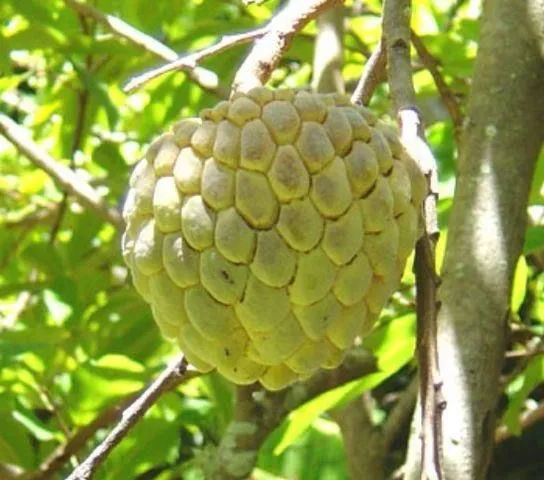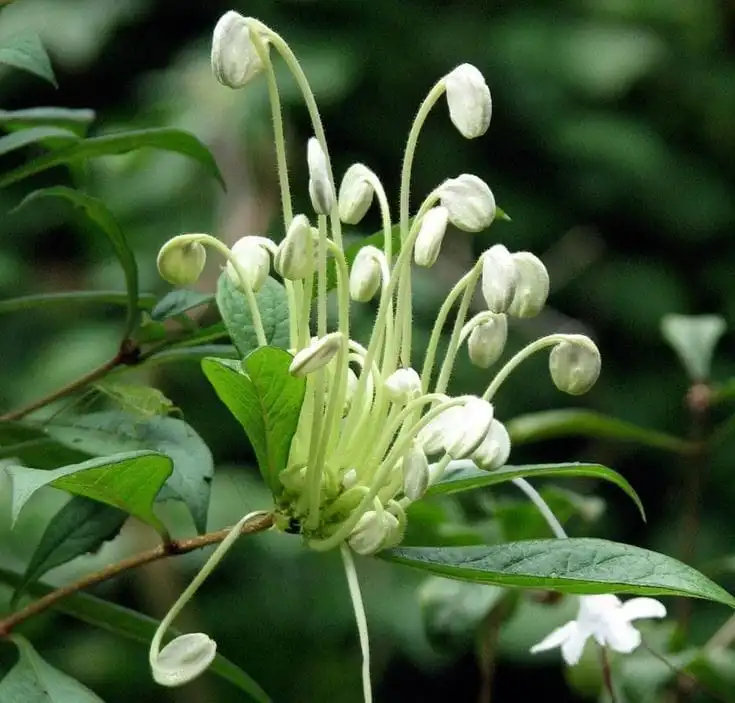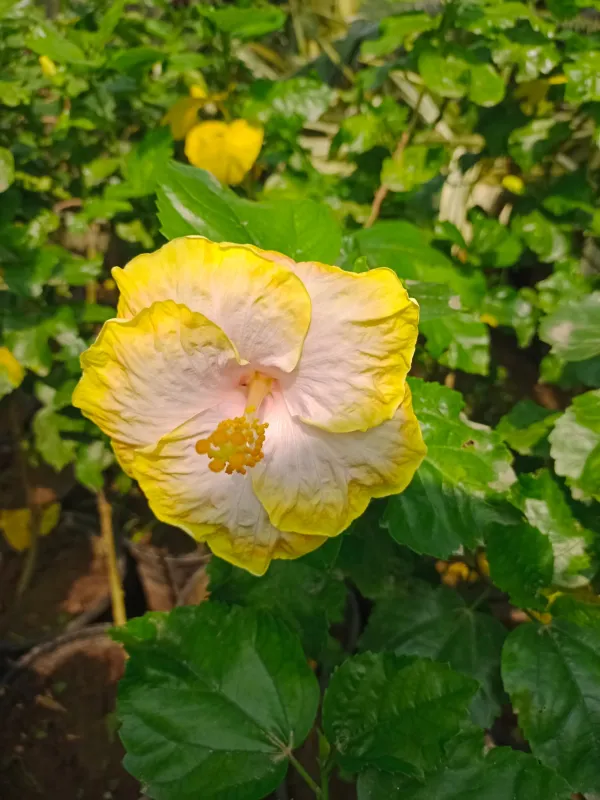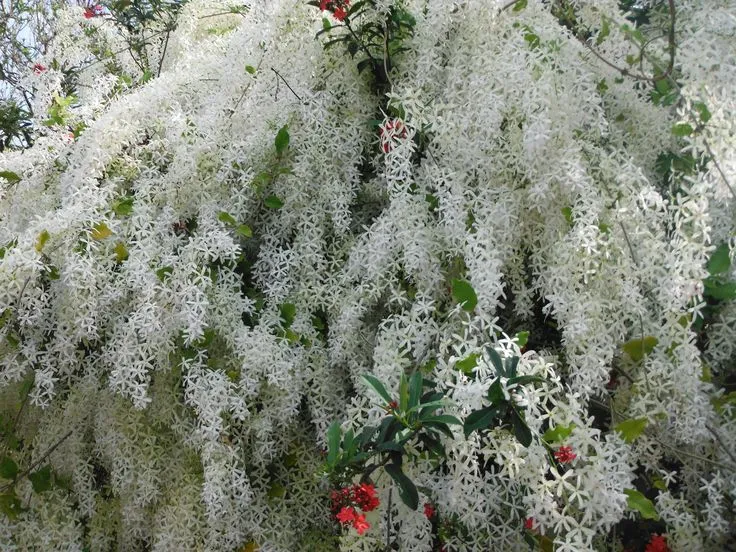Benefits of Custard Apple Trees: Nature’s Sweet Gift
Custard Apple (Annona squamosa), also known as “Sugar Apple” or “Sitaphal” in many regions, is a tropical fruit-bearing tree celebrated for its delicious, creamy fruit and its numerous health, environmental, and economic benefits. Native to the tropical Americas, it is now grown in many parts of the world, including Asia, Africa, and Australia. The custard apple tree is not only a source of a sweet and nutritious fruit but also plays a valuable role in traditional medicine, soil improvement, agroforestry, and economic development.
This article explores the various benefits of custard apple trees, covering health, environmental, agricultural, and economic aspects.
The custard apple tree is truly a multi-beneficial plant that offers far more than its delicious fruit.
1. Nutritional and Health Benefits of Custard Apple Fruit
Rich Source of Nutrients
Custard apple fruit is packed with essential nutrients such as:
Vitamin C: Boosts immunity and acts as an antioxidant.
Vitamin B6: Supports brain function and reduces fatigue.
Potassium and Magnesium: Helps regulate blood pressure.
Fiber: Promotes healthy digestion and prevents constipation.
Iron and Copper: Supports red blood cell production.
Boosts Immunity
The high content of vitamin C in custard apples helps enhance the immune system, fighting off infections and reducing oxidative stress in the body.
Aids in Digestion
Custard apple is rich in dietary fiber, which promotes smooth bowel movements, prevents constipation, and aids in the digestion of other nutrients.
Supports Heart Health
Magnesium and potassium help regulate blood pressure and maintain a healthy heart rhythm. The fruit’s antioxidants also protect the heart from oxidative damage.
Promotes Healthy Skin and Hair
Custard apple contains compounds that help promote collagen production, contributing to glowing skin and healthy hair. The iron content supports oxygen supply to the scalp, reducing hair fall.
Anti-inflammatory Properties
The fruit and leaves of the tree possess anti-inflammatory compounds that may reduce inflammation and pain associated with arthritis and other inflammatory conditions.
Aids in Weight Gain (for Underweight Individuals)
Due to its high-calorie content, custard apple is a great option for people trying to gain weight in a healthy manner.
2. Medicinal Benefits of the Custard Apple Tree
Traditional Uses in Herbal Medicine
The various parts of the custard apple tree — including the leaves, bark, seeds, and roots — have been used for centuries in traditional and Ayurvedic medicine to treat a range of conditions.
Leaf Extracts as Natural Remedies
Custard apple leaves are known to have:
Antidiabetic properties – Leaf extracts can help regulate blood sugar levels.
Antibacterial and antifungal properties – Useful in treating skin infections.
Wound healing properties – Crushed leaves are applied to minor wounds.
Anti-Cancer Properties
Recent studies suggest that the acetogenins found in the seeds and leaves may have cytotoxic effects against cancer cells. While research is ongoing, this potential use highlights the plant’s medicinal promise.
Relieves Anxiety and Depression
Certain compounds in custard apple leaves have calming effects and are used in traditional medicine to reduce stress, anxiety, and mild forms of depression.
3. Environmental and Ecological Benefits
Improves Soil Quality
Custard apple trees are known to improve soil fertility through leaf litter that decomposes and adds organic matter. The roots also help prevent soil erosion.
Low Water Requirements
These trees are drought-resistant once established, making them ideal for arid and semi-arid regions where water resources are limited.
Supports Biodiversity
Custard apple trees provide shelter and food for various insects, birds, and animals, promoting local biodiversity. Their flowers attract pollinators like bees and beetles.
Carbon Sequestration
As a perennial tree, custard apple helps sequester carbon dioxide from the atmosphere, contributing to climate change mitigation.
Natural Shade and Windbreak
These trees can be used as shade trees in farms, gardens, and along roadsides. Their dense foliage acts as a windbreak, protecting crops and smaller plants.
4. Agricultural Benefits
Low Maintenance Tree
Custard apple trees require minimal care, are resistant to many pests and diseases, and adapt well to a variety of soil types.
Fast Growing and Early Fruiting
Under suitable conditions, the tree can begin bearing fruit in just 2 to 3 years, providing an early return on investment for farmers.
Intercropping and Agroforestry
Custard apple can be grown in intercropping systems, alongside other crops like legumes and vegetables, improving farm productivity and land utilization.
Natural Pesticide Source
Custard apple seeds are ground and used in traditional agriculture as organic insect repellents, especially for aphids and lice.
5. Economic Benefits
Income Generation for Farmers
Custard apple fruit has strong market demand in both local and export markets. It can be sold fresh or processed into various products such as:
Custard apple pulp
Ice cream and desserts
Juices and smoothies
Jams and jellies
Value-Added Products
The increasing popularity of organic and exotic fruits in the global market has created new opportunities for farmers and entrepreneurs to process custard apple into:
Powdered supplements
Frozen pulp
Health drinks
Cosmetic and skincare products (using leaf or seed extracts)
Job Creation
Custard apple cultivation, harvesting, processing, and marketing generate employment in rural areas, especially for women and small-scale farmers.
Note:The custard apple tree is truly a multi-beneficial plant that offers far more than its delicious fruit.
6. Culinary Uses and Benefits
Delicious and Versatile Fruit
Custard apple has a sweet, creamy flavor similar to custard, making it popular in:
Desserts like custards, kheer, and fruit salads
Smoothies and milkshakes
Baking as a natural sweetener or filling
Natural Sweetener
Its sweetness makes it a healthy alternative to refined sugar in homemade recipes.
Lactose-Free Cream Substitute
The creamy texture of the fruit makes it an excellent non-dairy base for vegan recipes.
7. Cultural and Spiritual Significance
Symbol of Fertility and Prosperity
In several cultures, especially in India and Southeast Asia, the custard apple tree symbolizes fertility, abundance, and prosperity. It is often grown in home gardens for good fortune.
Sacred Uses
In traditional rituals and religious ceremonies, custard apple fruits are offered to deities as symbols of sweetness and nourishment.
8. Benefits of Custard Apple Tree Parts
Seeds
While toxic if consumed raw, custard apple seeds are used in external treatments for lice and skin infections.
Used in traditional medicine to treat parasitic infestations.
Leaves
Used in infusions and teas to relieve indigestion, inflammation, and respiratory issues.
Crushed leaves applied to wounds or insect bites for natural healing.
Bark and Roots
Bark is used for its astringent properties in folk remedies.
Decoctions of bark and roots are believed to treat diarrhea, dysentery, and even fever.
9. Preservation and Sustainability
Promotes Sustainable Agriculture
Because custard apple trees thrive in marginal soils and require fewer chemicals, they are ideal for organic farming and sustainable land use.
Preservation of Native Varieties
Supporting the cultivation of custard apple contributes to the preservation of indigenous fruit varieties, supporting biodiversity and food security.
10. Future Potential and Research Opportunities
Biotechnological Research
The unique compounds found in custard apple seeds and leaves are of great interest in biotechnology and pharmaceutical research, particularly for cancer, diabetes, and antimicrobial treatments.
Climate-Resilient Crop
Custard apple’s drought-tolerant nature makes it an important crop in the face of climate change, helping communities in dry regions secure food and income.
Conclusion
The custard apple tree is truly a multi-beneficial plant that offers far more than its delicious fruit. From its role in nutrition and medicine to its environmental and economic significance, it stands as a remarkable gift of nature. Its adaptability, low maintenance needs, and high returns make it an ideal choice for farmers and gardeners alike. As awareness of its benefits continues to grow, the custard apple tree will undoubtedly play an increasingly important role in sustainable agriculture, health care, and rural development.
Whether you’re a health enthusiast, a farmer, an environmentalist, or a nature lover, the custard apple tree has something valuable to offer. Planting and preserving this wonderful tree is not only a step toward a healthier lifestyle but also a contribution to a greener and more sustainable world.
Would you like this content converted into a blog format or broken down into headings for a website or article?









Leave a Reply